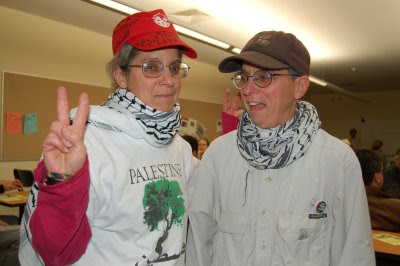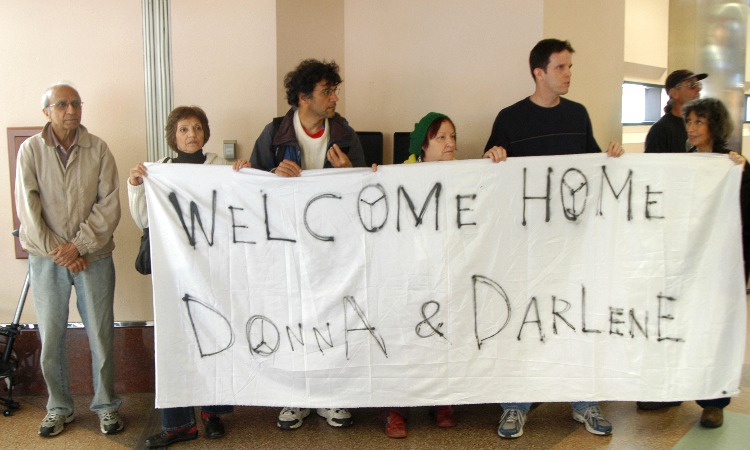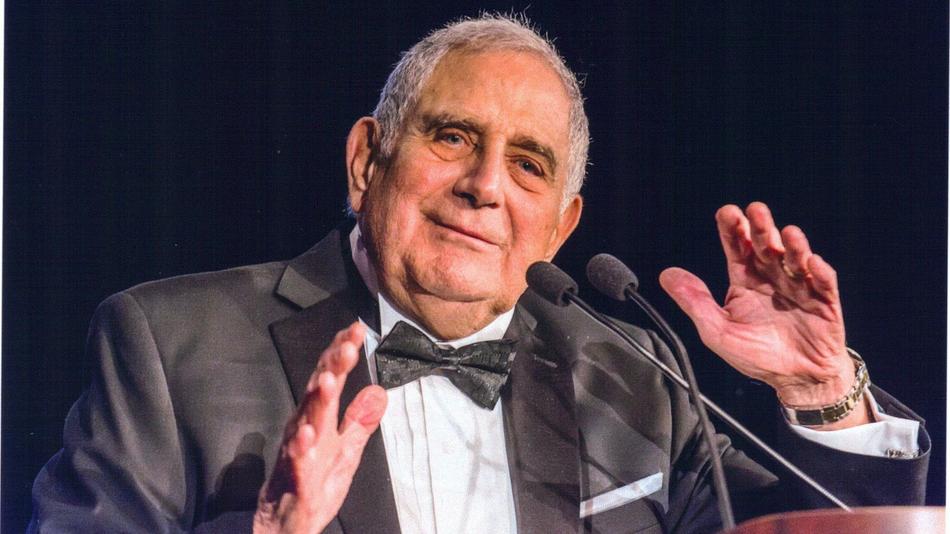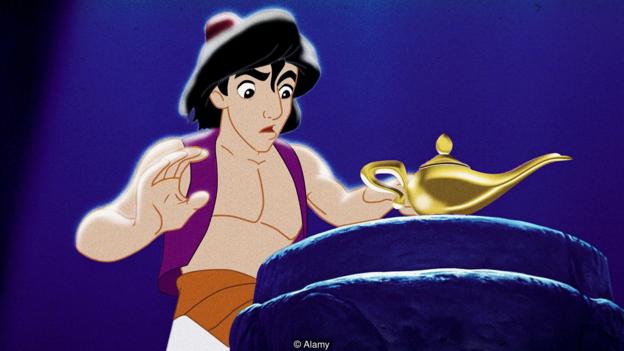www.aljazeerah.info
Opinion Editorials, July 2017
Archives
Mission & Name
Conflict Terminology
Editorials
Gaza Holocaust
Gulf War
Isdood
Islam
News
News Photos
Opinion Editorials
US Foreign Policy (Dr. El-Najjar's Articles)
www.aljazeerah.info
This Week from Palestine: Remembering Darliene Wallach and Jack Shaheen By Mazin Qumsiyeh Al-Jazeerah, CCUN, July 17, 2017 |
 |
 |
 |
| Donna and Darlene Wallach |
***
An Israeli raid in Bethlehem killed a young man in Dheisheh refugee
camp and Israeli forces closed Al-Aqsa mosque to worshipers on Friday
(July 14, 2017) after a gun battle between Israeli occupation forces and
Palestinian resistance fighters (although it is not clear what actually
happened in this incidence, closing the mosque is unprecedented in its
long history).
Our friend
Jack Shaheen died age 81. He worked
diligently to challenge and expose the virulent attempts in mass media
and Hollywood to paint Arabs as “billionaires, bombers or belly
dancers”! We lost other friends this week. Darlene Wallach tried to help
Gaza fisherman facing routine attacks from the Israeli navy. In November
2008, she and Andrew Muncie and the late Vittorio Arrigoni were
kidnapped by the Israeli Navy, imprisoned, then deported. Darlene talked
about her experience on Democracy Now:
https://www.democracynow.org/2008/11/21/us_activist_detained_in_israeli_jail
We are reminded that people who do good deeds like Darlene and Jack
leave the world a little better than they found it and are remembered as
heroes. At my age, I see my own friends die and feel a bit lonely
sometimes but then I think of all the hundreds of new (many younger)
people I meet every year and I see the renewal of hope. Yesterday, the
results of the uniform exams for high school graduates were announced.
Children of martyrs and children of political prisoners got excellent
grades. We look forward to welcoming some of those at Bethlehem
University as we build a future that those who departed would be proud
of.
The Palestine Institute of Biodiversity and Sustainability
and the Palestine Museum of Natural History at Bethlehem University are
seeking volunteers and students of all ages and backgrounds interested
in revolutionizing research and in protecting people and nature in
Palestine. Master or undergraduate students seeking to do high impact
research projects are especially needed now. Living under difficult
circumstances is a challenge but also an opportunity (your actions carry
more weight). You can also help us from where you are. Just email
info@palestinenature.org
or call 970 (0)2-2773553 and let us discuss how you can join the team
of volunteers and staff.
‘Gaza will be unlivable next year, not
2020 as the UN says'
https://972mag.com/gaza-will-be-unlivable-next-year-not-2020-as-the-un-says/128598/
Sign and publicize this call for a world-wide campaign for Gaza:
http://we4gaza.org/2017/07/12/prova/
Why is Mahmoud Abbas
letting children die in Gaza?
https://electronicintifada.net/blogs/ali-abunimah/why-mahmoud-abbas-letting-children-die-gaza
Israeli suit against family of Palestinian attacker takes collective
punishment to new extreme
http://mondoweiss.net/2017/07/palestinian-collective-punishment/
Mennonite Church central committee supports dis-investment from all
entities supporting Israeli occupation
https://mennopin.org/2017/07/07/mennopin-press-release/
Steve
Feldman: On the ground with Israelis and Palestinians
http://www.journalnow.com/opinion/steve-feldman-on-the-ground-with-israelis-and-palestinians/article_7357d884-6660-11e7-b80e-2b5303d8137e.html
Palestine Expo a huge success – held 8 & 9 July 2017
https://www.palestineexpo.com/
Stay Human
& Come visit us in occupied Palestine
Mazin
Qumsiyeh
A bedouin in cyberspace, a villager at home
Professor and
(volunteer) Director
Palestine Museum of Natural History
Palestine
Institute of Biodiversity and Sustainability
Bethlehem University
Occupied Palestine
http://qumsiyeh.org
http://palestinenature.org
Join me on facebook
https://www.facebook.com/mazin.qumsiyeh.9
***
Free Gaza Activists Welcomed Home as Heroes, then Join Protest
Sharat G. Lin | 31.01.2009 08:10 |
After spending six months in Gaza and Cyprus working tirelessly to
defy the Israeli blockade of the Palestinian territory and defend
Palestinians from military attacks, two San Jose residents found upon
their return that the protests that they had helped start had mushroomed
a hundred-fold in response to Israel’s invasion of Gaza.
Two American Jewish women, Donna and
Darlene Wallach, left their lives behind in San Jose,
California six months ago to break the Israeli siege of Gaza.
Courageously sailing on the first two Free Gaza boats, SS Free Gaza and
SS Liberty, they had no idea of their fate at the hands of the Israeli
navy, which has maintained a total sea blockade of Gaza since the 1970s.
“We had no idea that we would ever reach Gaza. We were
preoccupied with what we would do if the Israeli navy stopped us,” Donna
recalled.
But after many threats and much intimidation, the
Israeli government backed down and let them through. Intense pressure
from some European governments like Greece and Cyprus helped. But it is
probable that some behind-the-scenes advice from the U.S. government
persuaded the Israelis to avoid the adverse publicity of a confrontation
in the midst of the U.S. presidential election campaign. On August 23,
2008, the two boats sailed into Gaza Port to the ecstatic cheers of tens
of thousands of Palestinians who lined the docks and crammed into boats
to receive them.
On Sunday, January 25, 2009, the two sisters
arrived at Mineta San Jose International Airport to a heroes’ welcome.
Some two dozen friends and supporters greeted them with banners and hugs
as they emerged from the security checkpoint.
Darlene recounted
her abduction at gunpoint by Israeli navy commandos on November 18, 2008
while she was accompanying Palestinian fishermen 7 nautical miles off
the coast from Deir al-Balah. This was beyond the arbitrary
6-nautical-mile limit enforced by the Israeli navy since October 2006,
but well within the internationally-recognized territorial waters of
Gaza. She was one of three international observers, along with Vittorio
Arrigoni of Italy and Andrew Muncie of the United Kingdom. They were on
three fishing boats, accompanying 15 Palestinian fishermen. All were
kidnapped and taken to Ashdod, after which the Palestinian fishermen
were interrogated and released. Negotiations continue for the return of
the confiscated fishing boats that are the sole means of livelihood for
most of the 15 fishermen.
“I had no passport and no money,”
explained Darlene. “They kidnapped me in Palestinian waters. Then they
charged me with entering Israel illegally!” she continued.
She
was detained at Maasiyahu Prison, near Ben Gurion International Airport
in Lod. Primarily a prison for men, the facility also contains a special
section exclusively for “immigration violators” where she was held.
After her telephone interview from prison by Amy Goodman, broadcasted on
the radio program Democracy Now!, Darlene said that guards seized her
mobile phone.
The U.S. embassy in Tel Aviv refused to issue her
a replacement passport, but instead gave her an “emergency” passport
that was valid only until first entry into the United States.
Facing immediate deportation, Darlene insisted on being sent to London
where she has people to receive and support her. Israeli officials
refused, insisting on deporting her only to New York. So she landed in
New York City with no money, no bags, no spare clothes, and with only an
expired passport. Fortunately, after a call for help through the Free
Gaza network, supporters came forward to assist her. But instead of
coming home to San Jose, Darlene saw her tasks in Gaza as unfinished and
rushed as soon as possible back to Cyprus to resume work with the Free
Gaza Movement in sending more boats and humanitarian aid to Gaza. But
with the long-planned Israeli invasion of Gaza imminent and Israel
massing its forces along the border, the Hamas-led government in Gaza
asked the remaining foreigners to leave with the last sailing of the SS
Dignity from Gaza Port.
With many harrowing stories to tell, it
was finally time for Donna and Darlene to come home. But upon landing in
San Jose, their first act after a grueling three days of flights was to
join an on-going street protest against the blockade and Israeli war
crimes in Gaza.
As Israel launched its full-scale aerial assault
on Gaza on December 27, 2008, killing some 300 Palestinians in the first
two days, most of the world reacted with horror and outrage over the
rapidly deteriorating humanitarian situation of Gaza’s 1.5 million
residents. These events sparked worldwide protests that snowballed into
some of the largest ever demonstrations exclusively on the
Israel-Palestine conflict. In San Jose, the largest demonstrations on
January 4, 2009 and January 11 at Stevens Creek and Winchester
Boulevards each swelled with crowds of up to 1200 people, packing to
overflowing all four corners of the busy road intersection. These were
the largest protests ever assembled in San Jose (and in San Francisco
and many other cities as well) exclusively on the issue of the
Israel-Palestine conflict and unconditional U.S. support for Israel.
The last Israeli troops pulled out of Gaza, predictably on the day
before Barack Obama’s inauguration as President of the United States.
Relying on a compliant Bush administration, Israel ignored ceasefire
offers from Hamas and pleas from the United Nations, pressing on with
its military assault on the tiny Gaza Strip, killing over 1300
Palestinians and wounding over 5000. Nearly a quarter of the casualties
are believed to be children.
But in spite of the Israeli
withdrawal, protests go on against Israeli human rights violations and
the massacres of civilians. Only the content has changed from protesting
the loss of life to mourning for the dead in Gaza.
For Donna and
Darlene Wallach, who initiated a small Palestine vigil in Plaza de César
Chávez in downtown San José years ago, the street protests have grown by
more than a hundred fold. The struggle goes on precisely because there
is hope – hope that the occupation can be broken, hope that Israeli
apartheid can be tossed into the dustbin of history, hope that sowing
justice will someday reap peace for all.
http://freegaza.org
Sharat G. Lin
Homepage:
http://www.sanjosepeace.org
***
Jack Shaheen dies; scholar persuaded Disney to alter 'Aladdin' as he fought Hollywood's racial stereotypes
Courtesy Michele Tasoff Jack Shaheen, who taught for decades at Southern Illinois University, urged Hollywood to change its portrayals of Arabs as just "billionaires, bombers and belly dancers." Jack Shaheen, who taught for decades at Southern Illinois University, urged Hollywood to change its portrayals of Arabs as just "billionaires, bombers and belly dancers." (Courtesy Michele Tasoff) Steve Marble
Jack Shaheen, a prominent writer, scholar and activist who persistently — though diplomatically — challenged negative stereotypes of Arabs in film and television, has died at age 81.
Shaheen, who died Sunday in South Carolina after battling cancer, took on studio executives, offered counsel to actors and directors and lectured around in the world in his relentless quest to persuade Hollywood to move beyond the cinematic image of Arabs as just “billionaires, bombers and belly dancers.”
“There is no escaping the Arab stereotype,” Shaheen wrote in the preface to his 2001 book “Reel Bad Arabs: How Hollywood Vilifies a People,” before digging into what he said was the unrelenting portrayal of Arabs and Muslims as barbaric, uncultured, wealthy and unspeakably violent.
“These notions are as false as the assertions that blacks are lazy, Hispanics are dirty, Jews are greedy and Italians are criminals,” he wrote in “The TV Arab,” a painstaking study of hundred of television shows, from sitcoms to cartoons.
Paid Post
What's This? Paid Posts are created by our advertisers. Our editorial and reporting staffs are are not involved in the creation or production of Paid Posts.
Sophistication comes standard.
A Message from Southeast Toyota
With sleek style and standard features to match, the Toyota Corolla is the choice that keeps on keeping up with you.
See More
He was the one who would say ‘This is not OK'— Michele Tasoff, daughterIn 1993, his efforts helped persuade Disney to change the lyrics to the song “Arabian Nights” in its animated musical “Aladdin.”
When the film premiered, the lyrics seemed the stuff of racism to people like Shaheen:
Oh, I come from a land
From a faraway place
Where the camels roam
Where they cut off your ear
If they don’t like your face
It’s barbaric, but hey, it’s home.
In a opinion piece in the Los Angeles Times, Shaheen protested that Disney had managed to deliver a painful reminder to millions of Arab Americans that “the abhorrent Arab stereotype is as ubiquitous as Aladdin’s lamp.”
Disney yielded and trimmed the ear-cutting lines from the video release of the film, but refused to erase the “it’s barbaric” line, arguing it was a reference to the landscape, not the people who lived there.
It was emblematic of the small victories Shaheen would win. Never expecting seismic change in how the industry would portray Arabs, he was comfortable winning converts one by one, lecture by lecture, email by email, book by book.
“He felt the greatest disservice would be to stand back and say nothing,” his daughter Michele Tasoff said.
Shaheen was born in Pittsburgh on Sept. 21, 1935, the son of Lebanese immigrants. He grew up in nearby Clairton, an ethnically diverse mill town whose bleakness was captured in the movie “The Deer Hunter.” His mother — who raised Shaheen — wanted to be a school teacher, but settled for being a janitor at the schoolhouse instead in order to provide for her three children.
He became the first in his family to attend college, graduating from what’s now Carnegie Mellon University in Pittsburgh and earning a master’s degree in theater arts from Penn State. He received a doctorate in communications from the University of Missouri before joining the faculty at Southern Illinois University, where he would teach for decades. He also was a visiting professor at New York University, where his archives — papers, notes, scripts, children’s toys and thousands of films dating back to the silent movie era — are housed at the Hagop Kevorkian Center.
Courtesy Michele Tasoff Jack and Bernice Shaheen Jack and Bernice Shaheen (Courtesy Michele Tasoff)
His drive to find and — if possible — root out the unflattering and often ugly portrayals of Arabs in film arrived when his two children were watching a cartoon. When they ran into the living room and announced that there were “bad Arabs” on TV, Shaheen came in for a look. He was aghast, and it dawned on him that is was quite possible his children would grow up without ever seeing a “humane Arab” on television.
He began collecting movies, television shows, other media that he believed offered clear and lasting evidence that Arabs and Muslims were rarely depicted as ordinary people. It was a painful and unpleasant task, his daughter said, but one he felt was necessary.
“He was the one who would say ‘This is not OK,’” Tasoff said.
But he made inroads. George Clooney used Shaheen as a consultant on both “Three Kings” and “Syriana,” both set in the Middle East, and directors sought him out for advice. He recently consulted on Nickelodeon’s “Shimmer and Shine,” an animated children’s series about a pair of in-training genies. Shaheen and his wife, Bernice, who worked as his consultant, established a scholarship for Arab American mass communication students.
“The community lost one of its best,” said American-Arab Anti-Discrimination Committee Chairman Safa Rifka. “His work started a conversation about the representation of Arabs in Hollywood and the need for more nuanced depictions of the community. Dr. Shaheen will be greatly missed.”
Tasoff said her father was optimistic, yet pragmatic. Forward momentum may have been slowed with 9/11 and a wave of new television shows like HBO’s “Homeland.” President Trump’s proposed travel ban offered further discouragement.
“But he always remained hopeful,” she said.
He is survived by his wife, his daughter, a son Michael and four granddaughters.
http://www.latimes.com/local/obituaries/la-me-jack-shaheen-20170713-story.html
***
The Aladdin Controversy, Disney Can't Escape
Jack Shaheen, one of the most respected and loudest critics of the vilification of Arabs in Hollywood
By Sophia Smith Galer
14 July 2017
For many, Disney’s 1992 film Aladdin conjures up images of innocence: star-crossed lovers on a magic carpet, a benevolent pet tiger and a comedic genie who would grant every heart’s desire. Less well known is the fact that the film sparked a racial controversy, one that is still reverberating today.
This week saw the death of Dr Jack Shaheen, one of the most respected and loudest critics of the vilification of Arabs in Hollywood, who successfully campaigned for offensive lyrics to be changed in the original Aladdin soundtrack. Now only days after his death, the live-action Aladdin remake has been questioned over its casting woes.
The film-makers – including director Guy Ritchie – are on the hunt for leads who can live up to the animated film’s loveable street urchin Aladdin and Princess Jasmine. It’s been revealed that they’re struggling to wrap up their months-long search because of a difficulty in finding a singing, dancing actor who is Middle Eastern or Indian to play the title role. Disney have not commented on the search, and although it has been suggested that the lengthy casting process is due to the studio's commitment to finding the right actors, some are critical of the studio’s struggle.
The abhorrent Arab stereotype is as ubiquitous as Aladdin’s lamp – Dr Jack Shaheen
“Nobody in their right mind can state that it is impossible to find a young male South Asian or Middle-Eastern actor who can dance, sing and act,” says Academy Award nominated director Lexi Alexander, who is half German, half Palestinian. “Bollywood is an entire industry made up of talents like this and the Middle East has equally as much talent. It’s a convenient system that insists actors-of-colour need to be household names to be cast, while nobody wants to give them a break.” Alexander posted a list of potential actors on Twitter, asking Guy to “give me a call.”
This isn’t the first time that Disney has been criticised in relation to Aladdin. The well-loved soundtrack for the 1992 animation - A Whole New World notably won Disney an Academy Award, along with another Oscar for the entire score - is actually an edited version of the one that was heard in cinemas. The original lyric in the first verse of the song Arabian Nights described Arabia as “Where they cut off your ear if they don’t like your face”.
“Aladdin is not an entertaining Arabian Nights fantasy as film critics would have us believe,” wrote Jack Shaheen in 1992, then a professor of mass communications at Southern Illinois University, “but rather a painful reminder to 3 million Americans of Arab heritage, as well as 300 million Arabs and others, that the abhorrent Arab stereotype is as ubiquitous as Aladdin’s lamp.”
The film was criticised for perpetuating Orientalist stereotypes of the Middle East and Asia. The American-Arab Anti Discrimination Committee saw light-skinned, Anglicised features in the heroes Aladdin and Jasmine that contrasted sharply with the swarthy, greedy street merchants who had Arabic accents and grotesque facial features.
Shaheen warned that these images would perpetuate negative stereotypes that “literally sustain adverse portraits across generations.” He argued: “There is a commanding link between make-believe aberrations and the real world,” and warned of the negative portrayal of Agrabah, the film’s fictionalised city that he called “Hollywood’s fabricated Ayrabland.” It appears that for some, this warning wasn’t unfounded: in 2015 it was revealed that 30% of Republican voters in the US would vote in support of bombing Agrabah.
After Shaheen protested against the film alongside the American-Arab Anti-Discrimination Committee, Disney agreed to alter the lyrics in Arabian Nights for Aladdin's video release in 1993, and defended it, as it was a rare film to feature an Arab hero and heroine.
Daniel Newman, professor of Arabic at Durham University, acknowledges that Western portrayals have come a long way from the lotus-eating, Orientalist fantasies of yesteryear, but “barring a few exceptions, what has happened is that one cliché has been replaced by another; from the scimitar-wielding lascivious Arab, we have gone to the bomb-wielding terrorist Arab.” While some ‘moderate’ characters have been introduced in shows such as Homeland, he says, “the pervading feeling is one of ‘threat’, based primarily – if not exclusively – on religion.”
“I’d ask the animators to add benevolent market-vendors and heroic guards who befriend Aladdin,” Shaheen said of the 1992 Aladdin, conscious of the image of Middle-Eastern people that might be made on the film’s young viewers. He also asked the producers “to respect Islam and to add a humane character, Aladdin’s mother, an Arab woman willing to sacrifice everything for her son’s happiness.”
Whether the new film-makers choose to stand in the old guard or vanguard remains to be seen. Back in 1992, Shaheen cited “cable television and videocassettes” as making it easy for stereotypes to travel far and wide. That is even more important in an era of mass media, all-you-can-watch online streaming. It might be worth asking ourselves when the new film is released: what would Jack Shaheen think?
If you would like to comment on this story or anything else you have seen on BBC Culture, head over to our Facebook page or message us on Twitter.
And if you liked this story, sign up for the weekly bbc.com features newsletter, called “If You Only Read 6 Things This Week”. A handpicked selection of stories from BBC Future, Earth, Culture, Capital and Travel, delivered to your inbox every Friday.
http://www.bbc.com/culture/story/20170714-the-aladdin-controversy-disney-cant-escape
***
Share the link of this article with your facebook friends
|
|
|
|
||
|
||||||




